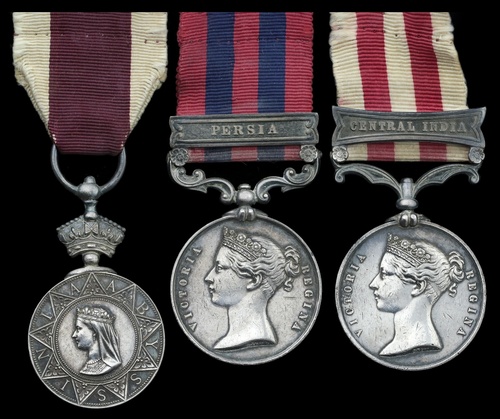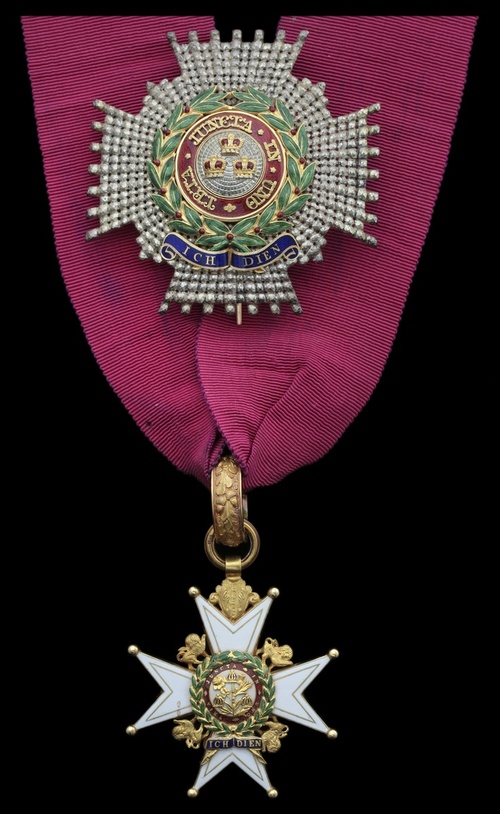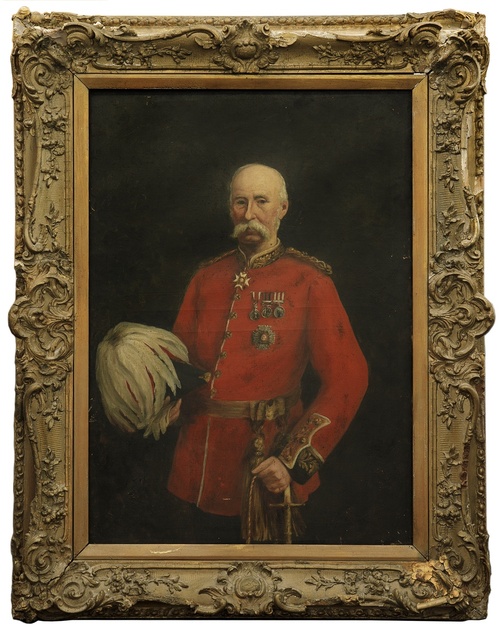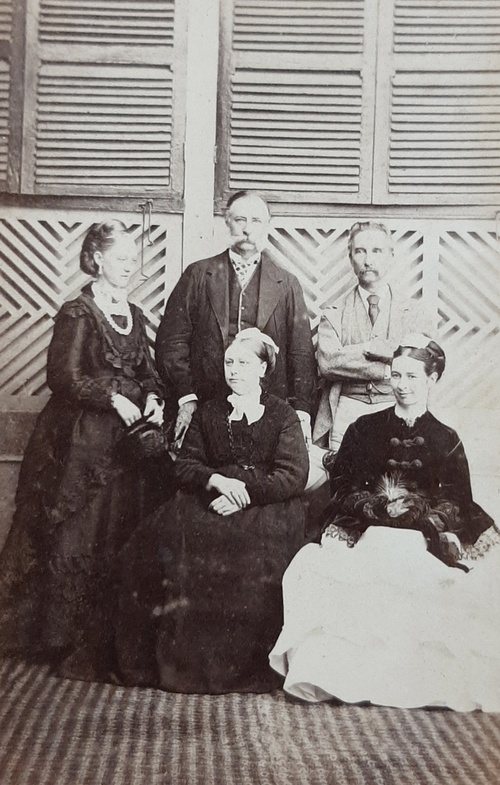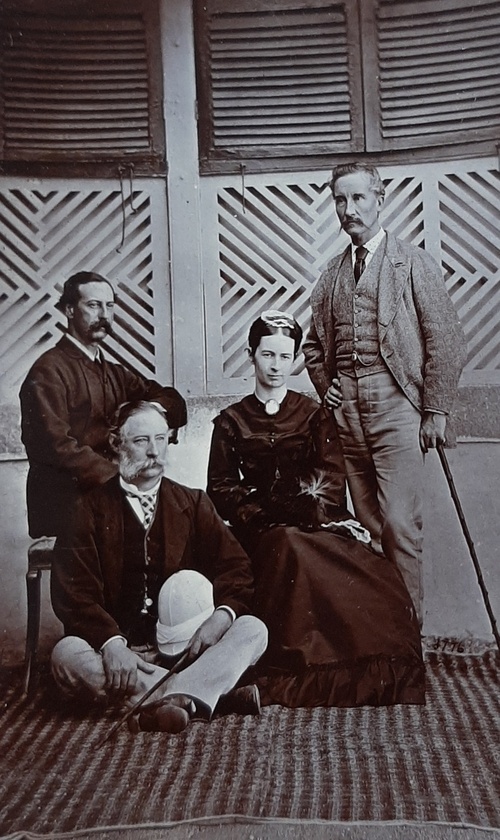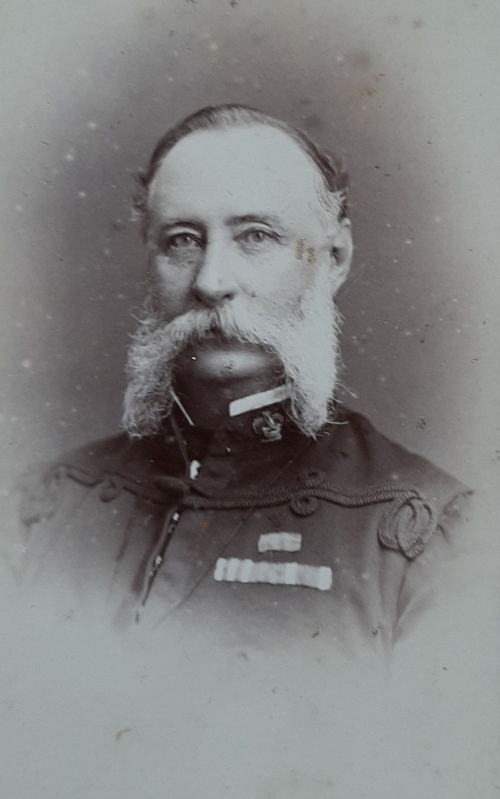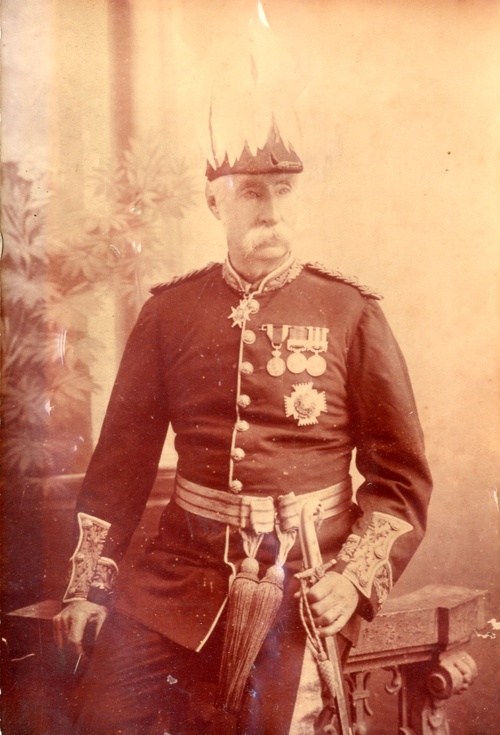Auction: 22003 - Orders, Decorations and Medals
Lot: 436
Sold by Order of a Direct Descendant
A very fine K.C.B. group of four awarded to General Sir A. W. Lucas, Indian Army, who saw service with the 7th Native Infantry against the Marathas before joining the Commissariat and seeing service in Persia and Rajputana before finally becoming Head of the Commissariat for the Abyssinian Operations
The Most Honourable Order of the Bath, Knight Commander's set of Insignia, comprising neck Badge, gold (hallmarks for London 1879) and enamel; breast Star, silver, gold and enamel, with gold retaining pin, in its Garrard & Co. case of issue; India General Service 1854-95, 1 clasp Persia (Capt. A. W. Lucas, Com. Dep.); Indian Mutiny 1857-59, 1 clasp, Central India (Captn. A. W. Lucas,); Abyssinia 1867-68 (Lt. Coll. A. W. Lucas Commst. Dept. Bombay Army), the campaign medals mounted as worn, some slight staining to the neck Badge, contact marks, nearly very fine (4)
K.C.B. London Gazette 3 June 1893.
Alfred William Lucas was born at Greenwich on 5 July 1822, the son of Charles and Elizabeth Lucas. Commissioned into the Bombay Army as Ensign on 1 September 1838 with the 7th Bombay Native Infantry and promoted Lieutenant on 13 February 1840. With this unit he took part in the Mahratta Campaign of 1844-45 and was present at the capture of the forts of Monohur and Munsuntosh. He fell seriously ill at the end of this campaign and was forced to return to England: however he was soon back to India and began service with the Commissariat.
Promoted Captain on 17 November 1852 he was appointed to the Divisional Staff of the 2nd Division for the Persian Expedition in 1857 as an Assistant Commissary-General. During this campaign he was present for the capture of forts at Mohumra and the later pursuit of the beaten Persian Army. For his services here Lucas received his first 'mention' in a report by General Outram dated 1 July 1857.
Upon the outbreak of the Indian Mutiny he returned with the rest of the British Army from Persia. Lucas was attached to the Rajpootana Field Division and undertook a number of actions with it including the Siege of Kotah where he served with Captain, later Lieutenant-General, Edward Wray (medals sold in these rooms, 24 July 2019). He was again 'mentioned' around this time, by General A. Roberts who stated 'The Commissariat under that able Officer Captain Lucas, left me nothing to desire. His arrangements have been most complete throughout.'
Earning a promotion to go with his 'mention' on 20 July 1858, Lucas was involved in the April 1858-January 1859 pursuit of Tatya Tope's army across Rajputana seeing action at Sanganeer and the Battle of Banas. After the latter he was 'mentioned' again with Robert's stating:
'I received the most able and valuable assistance from my personal staff, Lieut. Newal, Acting Assistant Adjutant-General; Captain Ballard, C.B., Assistant Quarter Master General (who accompanied the cavalry in pursuit) Captain Alban, Deputy Judge Advocate General; Captain Lucas, Deputy Assistant Commissary General, and my staff Surgeon Wyllie, were eager in carrying my orders during the day, and I desire to bring their services to His Excellency's notice.'
He was still with this force during the gruelling pursuit of the rebel leader that followed; indeed his role as Commissary was vital for the success of the British columns as the war degenerated into one of small, mobile forces clashing intermittently across broad areas. Lucas' valuable contribution was highlighted by Brigadier Honnor in his dispatch of 11 February 1859 which states:
'I have to bring to special notice that since the Force left Nusseerabad on the 18th December 1858, up to the present date, it has marched upwards of 800 miles, and the Commissariat has daily, with one or two exceptions, supplied to every man, horse and baggage animal entitled to it, his full ration of food, grain and forage, and even at the end of yesterday's operations at night, every soldier had a good dinner of fresh beef, vegetables, and biscuit, with the usual grog. These advantages I attribute to the excellent arrangements made by Captain Lucas, Assistant Commissary General, before the Force left Nusseerabad […]'
He went on to point out 'It is not usual to mention matters of this kind in a Dispatch, but the great benefits which have been experienced by the Force from the above arrangements, and the practicability of European Troops being well supplied with food, even during the most rapid operations in the Field, have induced me to bring these circumstances prominently forward for the especial consideration of Government'.
Further advanced to the rank of Lieutenant-Colonel with the Bombay Army on 1 September 1864, Lucas was still serving with this rank when appointed head of the Commissariat for the Abyssinia Expedition in 1868. This expedition is best known for the logistical challenges it presented rather than the ferocity of the fighting, and the role of the Commissariat was crucial. Lucas was later to pen an article on Land Transport in which he notes:
'The Egyptian camels which served in the Abyssinian war carried from five hundred to six hundred pounds each, and were constantly at work; but officers attached to the Commissariat were in charge of each convoy, the animals were carefully tended and were properly fed, and at the termination of the campaign all were in excellent order.'
Lucas was promoted Colonel on 15 August 1868, likely as a reward for his services and continued to serve with the Commissariat. Appointed Deputy Commissary General of Bombay in 1877 he was placed on the Unemployed Supernumerary List and retired in 1880. Promoted Lieutenant General in 1882 and General on 22 January 1889, Lucas died on 19 February 1896, only three years after the award of the K.C.B.; sold together with an archive comprising:
(i)
Two articles written by the recipient on the subject of improvements to the Bombay Commissariat.
(ii)
An entry from War Services giving details of the recipient's career and quoting mentions of him in orders and documents.
(iii)
A letter from the Teignmouth and Shaldon Bridge Company giving the recipient and his family the right to cross the toll bridge or use the local ferry without charge.
(iv)
The recipient's Last Will and Testament.
(v)
A copied extract from Hart's Army List coving the recipient's career prior to the Abyssinian Expedition.
(vi)
A framed three-quarter length oil portrait of the recipient in full dress uniform, wearing his medals, the frame somewhat chipped and damaged.
(vii)
A portrait photograph of the recipient in full dress uniform, somewhat damaged and later repaired.
(viii)
A collection of smaller photographs of the recipient and his family.
For his miniature dress Medals, please see Lot 513. For the Medals of his son, please see Lot 255.
Subject to 20% VAT on Buyer’s Premium. For more information please view Terms and Conditions for Buyers.
Sold for
£5,200
Starting price
£2400

